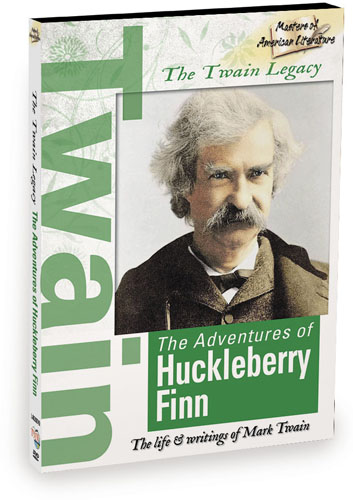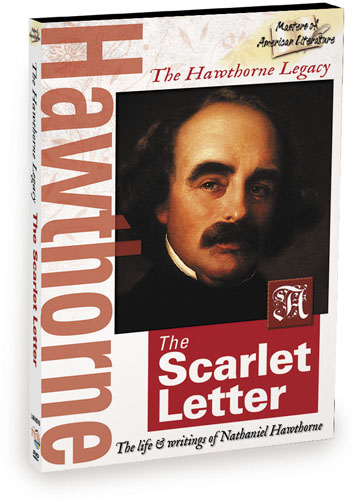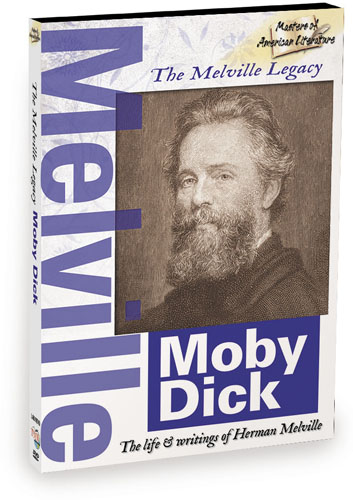ABOUT THE AUTHOR: Mark Twain (1835-1910): The Twain Legacy introduces an overview of Mark Twain's life, times and interpretation of The Adventures of Huckleberry Finn. There are extensive references to his early childhood in Hannibal, Missouri, his use of African American Dialect, his antipathy toward slavery and his effective use of irony in the story line. Even today The Adventures of Huckleberry Finn faces challenges from educational groups and whether this fictional story should be taught in the classroom. Leading scholars Shelly Fisher Fishkin, Justin Kaplan and David Lionel Smith put forward significant commentary promoting this classical American novel reading and studying. The Twain Legacy is the third of three Masters of American Literature series produced, directed and hosted by James H. Bride ll including "The Melville Legacy" and "The Nathaniel Hawthorne Legacy." ABOUT THE PROGRAM: The Twain Legacy offers students and teachers an insight into the life and writings of Mark Twain, a significant 19th century American literary icon. 'The Twain Legacy' is divided into five chapters intended for class and individual learning and discussion. Knowledgeable scholars explore themes, ideas and narrative style in The Adventures of Huckleberry Finn. By examining and exploring why his historical and moral concerns were important, the presenters weave Twain's themes of slavery, prejudice and class into a coherent awareness. Chapter 1- Twain Overview: Mark Twain is the pen name for Samuel Langhorne Clemons, born in Hannibal, Missouri in 1835 and died in 1910 in Reddington, Connecticut. Twain experienced a mixture of careers including journalism, riverboat piloting, essayist, short story writer and novelist, especially in 1885, with the publication of The Adventures of Huckleberry Finn. Ironically, his pen name, Mark Twain, means smooth sailing, which is in contrast to the stormy subjects explored in his stories. Chapter 2 - Twain's Hannibal, Missouri: Twain's personal and professional experiences from childhood and adult recollections are all intertwined in The Adventures of Huckleberry Finn. His narrative offers an abundance of serious and humorous incidences that reveal life experiences on the American frontier. Twain's upbringing in Hannibal, Missouri, where slavery was still a fact of life, had a great influence on his fictional character developments as well as illuminating accounts of racial relations in America. Chapter 3 - Twains' Use of Dialect: Twain listened and wrote with great respect for all Americans, especially African-American speakers. From early childhood and into adulthood, Twain heard their dialogue and wrote with accuracy and empathy. Well known writers, Shelly Fisher Fishkin, Justin Kaplan and David Lionel Smith shed new light on Jim and Huck's dialect and its importance in 19th century American literature. Though many critics penned acerbic comments about Jim's dialect, few could criticize Twain's attempts to bring this correct voice for African Americans and Midwestern Americans into fiction. Chapter 4 - Twain's Awareness of Slavery: In the 1870s slavery and Reconstruction were controversial in America. Mark Twain weaves the themes of slavery, prejudice and class effectively and controversially in The Adventures of Huckleberry Finn. With numerous suggestions about the challenges in protecting Jim as a slave, various events reveal prejudice and class distinctions among the wealthy and corrupt to imposters and charlatans. Chapter 5 - Twain's Use of Irony: As a literary stratagem, irony, can be so subtle that readers might misunderstand the author's real intention for its use. Twain's irony stimulates discussion in The Adventures of Huckleberry Finn about Jim and Huck escaping oppression: Jim to freedom and Huck to the west. In it first publication Twain's use of irony proved baffling to many critics and readers. This chapter advances discussion regarding Twain's genius in writing a book that still resonates with vibrancy, controversy and authority. TEACHER/STUDENT BENEFITS: All filming shot at historical places bringing time, place and person to life. Appropriate tie-ins to moral and social questions for today's society. Chapter length segments at 9 minutes or less for classroom teaching. Concise Chapter content provides space for adequate teacher/student discussion. Stimulating content for writing papers, classroom discussion and extended research. ABOUT THE HOST & PRESENTERS: For over twenty years James H. Bride 11, Host, has been producing and directing educational documentaries focusing on American and British writers. 'The Twain Legacy' scholars who appear on camera include: Shelly Fisher Fishkin, noted Twain biographer, professor at the University of Texas; David Lionel Smith, academic, writer, English professor, and Dean at Williams College; Justin Kaplan, noted author and Twain biographer. All present illuminating and fascinating interpretations for a book that has often been banned in America.

 Please wait...
Please wait...






